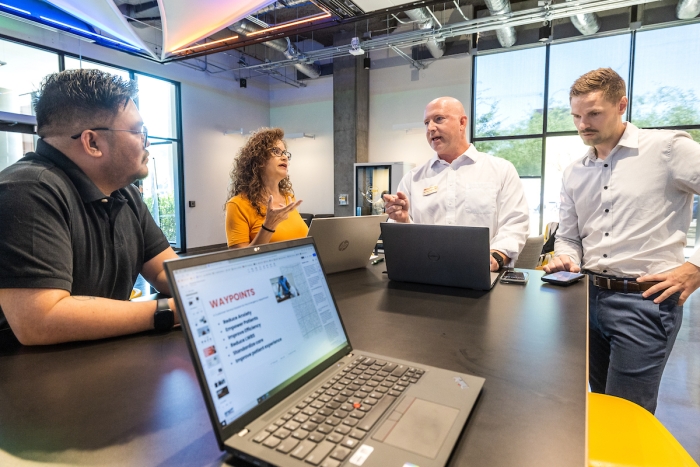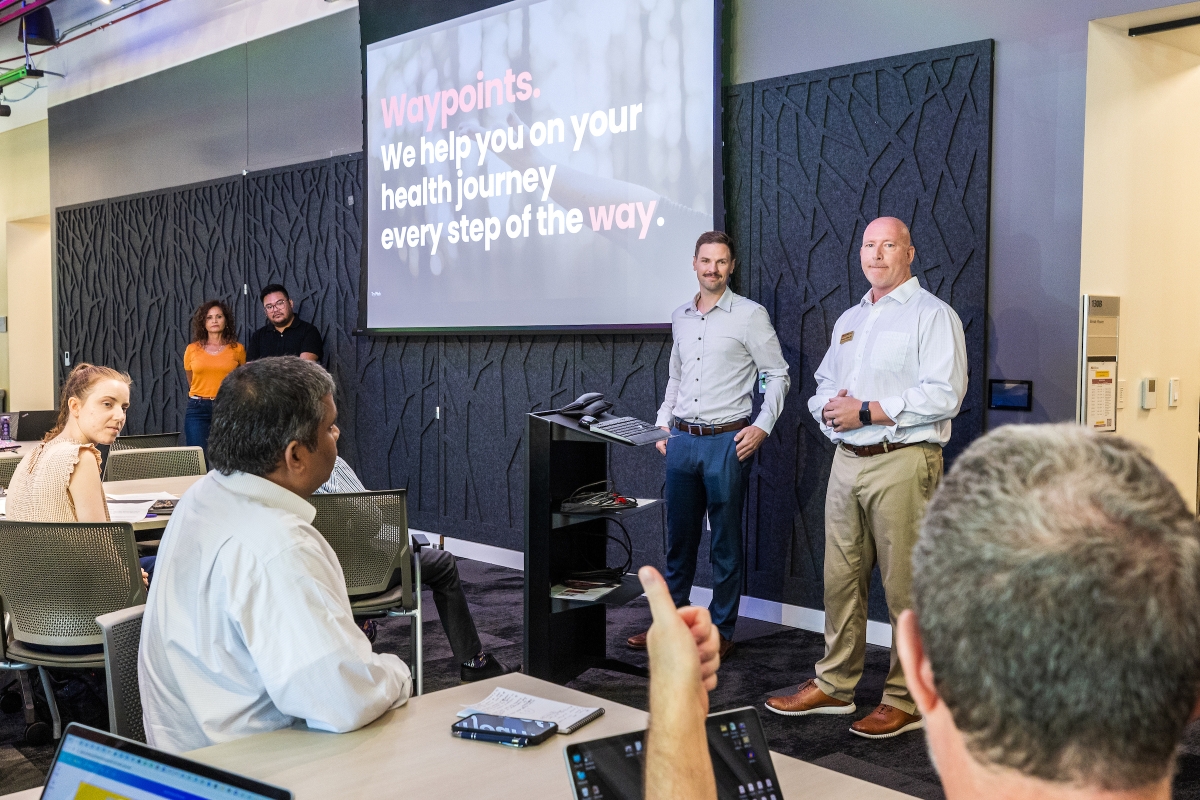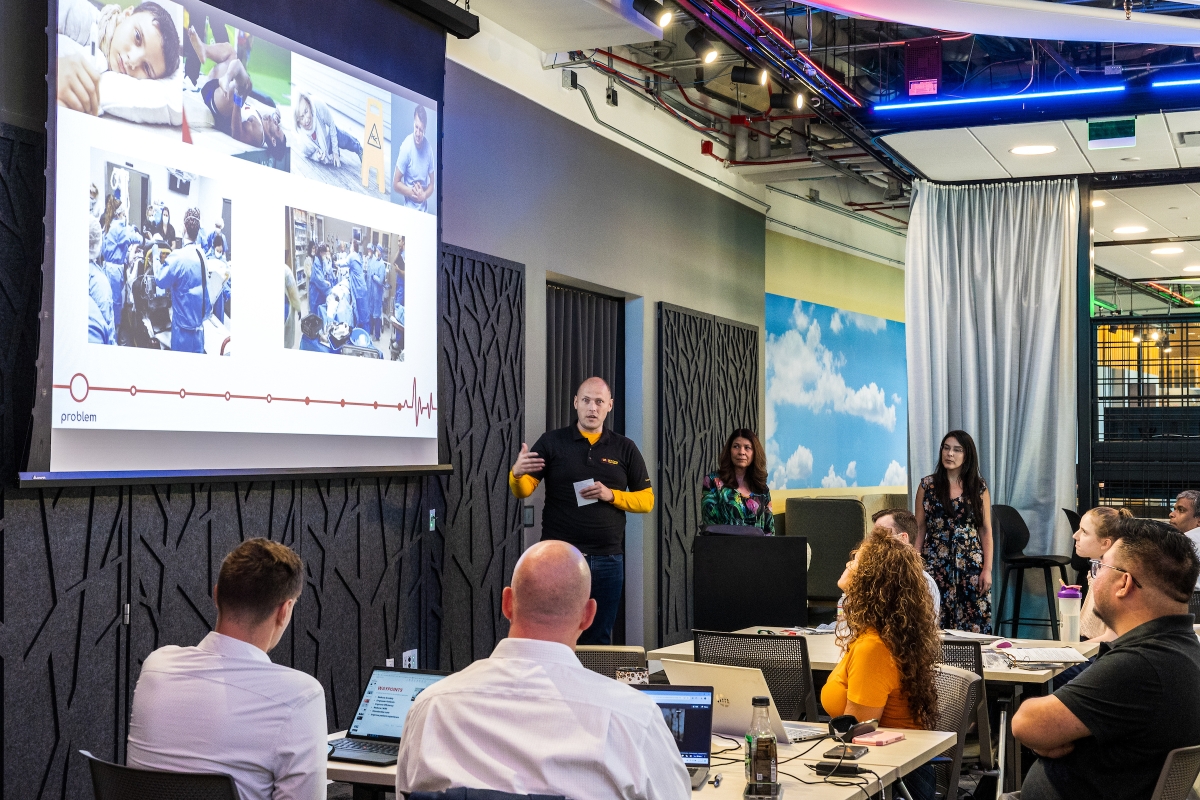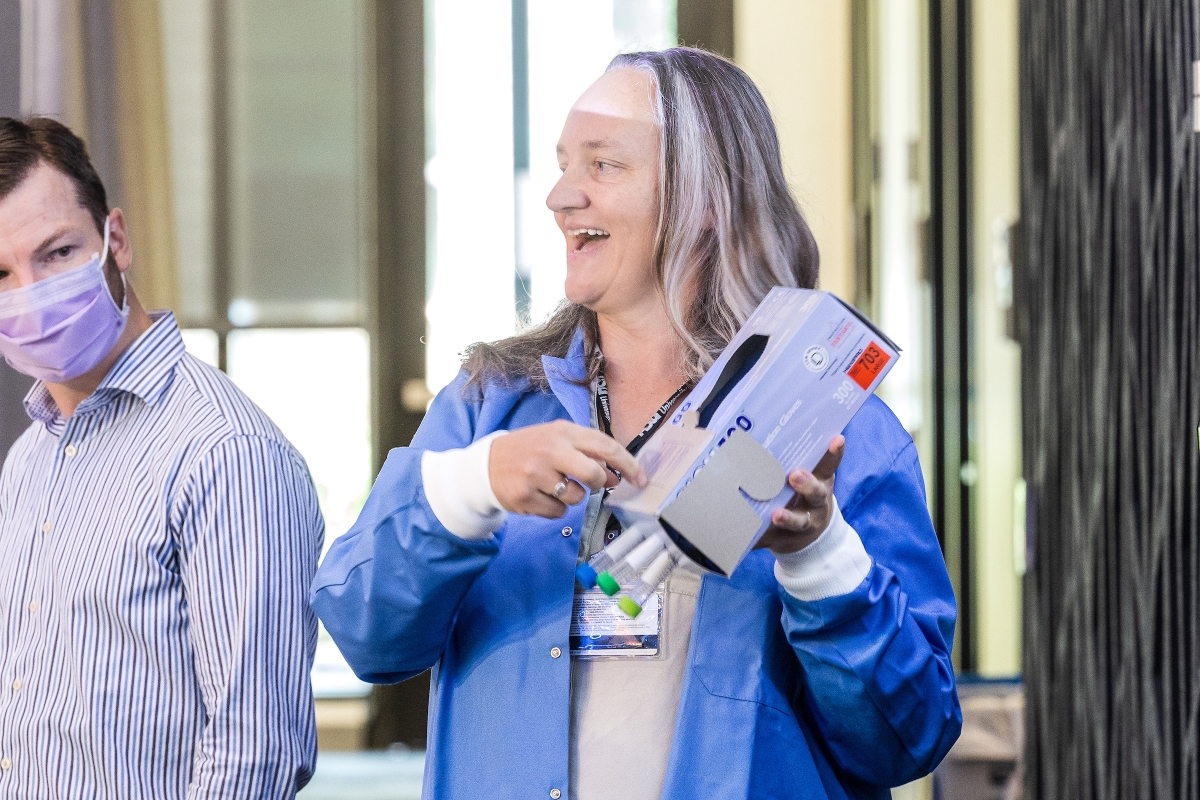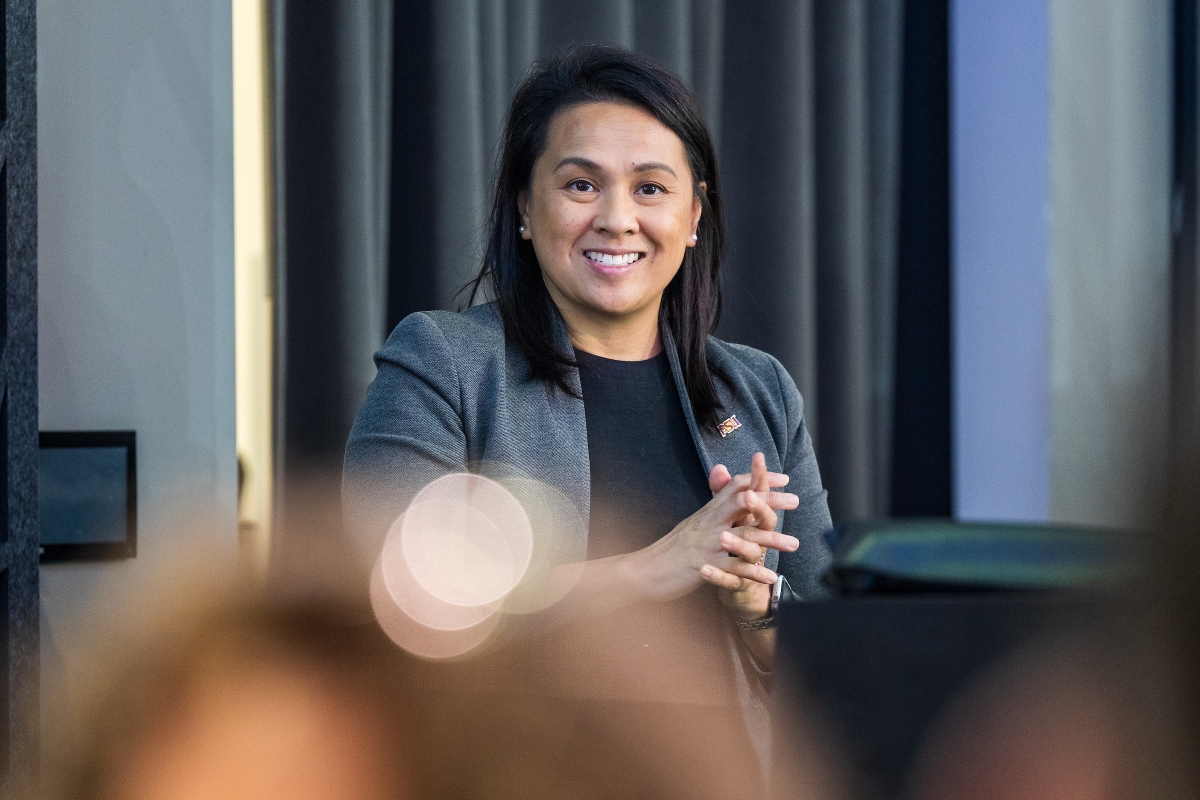Entrepreneurs, health care professionals come together to create medical solutions
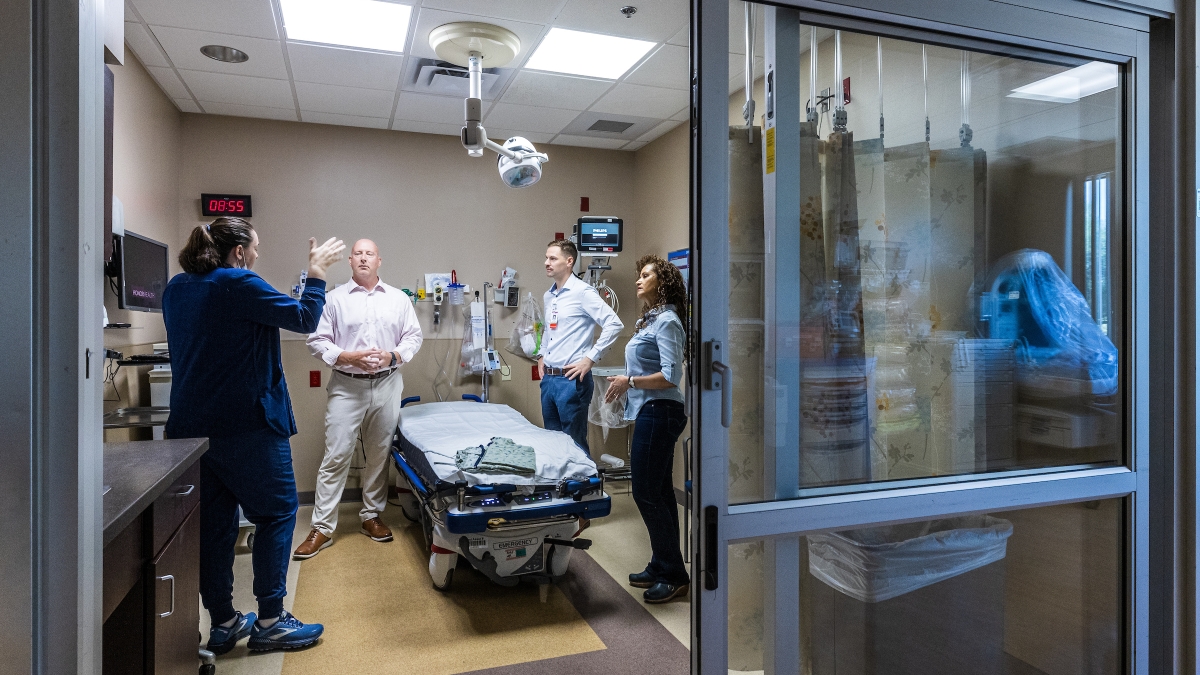
From left: Honor Health supervisor Brenna Burns, Michael Collins, senior director of health innovation at ASU’s Edson College of Nursing and Health Innovation, Honor Health internal medicine physician Dr. Ben Gifford and VA Phoenix Medical Center nurse Providencia Morales discuss ways to improve patient satisfaction in health care at the Thompson Peak Medical Center emergency department on Aug. 8. Collins, Gifford and Morales were participants in the Arizona Solutions for Global Health workshop and pitch competition presented by ASU Health. Photo by Charlie Leight/ASU News
Improving the emergency room experience. Revolutionizing blood draws. A more flexible SurgiSlinky that would replace bones.
Those are just some of the ideas that came out of the eight-day Arizona Solutions for Global Health workshop presented by ASU Health on behalf of the Plus Alliance.
The workshop, which concluded Aug. 14, was designed to find solutions to complex medical problems.
Twenty-one participants, which included entrepreneurs, ASU faculty and graduate students and health care professionals, were divided into five teams. Team members spent two days observing clinical environments at Barrow Neurological Institute and HonorHealth facilities, identified a problem and then spent several days devising a solution.
The teams then made three-minute pitches to a panel of judges gathered at the 850 PBC building on ASU’s Downtown Phoenix campus.
“This is important because it’s going to allow us to create or design an innovative product or system that can make a difference in patients’ lives,” said Michael Collins, a senior director and clinical assistant professor in ASU’s Edson College of Nursing and Health Innovation, and one of the participants.
The workshop is a partnership with Kings College London. Genevieve Bautista Young, vice president and chief operating officer of ASU Health, said they are hoping to select a few workshop participants to travel to Kings College at a future selected date to participate in a weeklong immersion with Professor Prashant Jha, head of Affordable Medical Technologies at Kings College, to further develop their ideas.
“We call it the Innovation Fellow experience,” Young said. “They’ll work with mentors and talk about their ideas and see if they translate to different health care systems. From there, they’ll further refine their idea into workable solutions.
“The workshop really focuses on the ideation process. How do you go from identifying a problem and then coming up with an idea that could potentially be turned into something?”
One team consisted of Collins; Errold Glenn Elad, an ASU graduate student who founded Ethical Health Solutions, a health care consultancy firm; Ben Gifford, an internal medicine physician at HonorHealth; and Providencia Morales, a nurse in the Veterans Affairs Phoenix health care system.
On the second day of their clinical visits, the team members spent time talking to emergency room doctors and nurses at the HonorHealth Scottsdale Thompson Peak Medical Center. Their goal: Come up with an idea that would improve a patient’s experience in the emergency room.
“How can we help relieve their anxieties and help the process?” Morales said. “It’s about improving patient satisfaction.”
Gifford said one benefit of the workshop is that it allowed a “fresh set of eyes” to look at hospital procedures or products.
“It’s extremely important to know what problems exist, where the frustration points are and where the hang-ups are,” he said. “Sometimes, if you’re in the health care system, you kind of get numb to seeing those things because they’re generally accepted. But the writing is on the wall where it’s very obvious where the problems are, what they are, and it seems like there’s obvious solutions.
“Even if we can make a small difference, it might make a huge difference because these systems and processes may be implemented for years to come and may be adopted by other health care systems. So this might touch millions of lives.”
The team eventually came up with an idea called Waypoints that, they said, will improve patient experience and operational efficiency in Arizona’s 318 hospitals and cut down on the 4.6% of patients who go to emergency rooms but are not seen.
Waypoints stresses better communication with patients the second they walk through the door and would provide video tutorials that help patients understand the emergency room process and the next steps in their care. Collins said the goal of Waypoints is to reduce patient anxiety.
“The problem is, going to the emergency room sucks,” he said. “Can we help along that entire journey of a patient, to not only be more satisfied with the care they receive but be more informed of what’s going on.”
The team that designed Lab Cow, essentially a computerized phlebotomy cart that would accelerate results and cut down mistakes in blood, drew the highest collective scoring from the judges.
Young said the workshop “exceeded expectations on all fronts.”
“The observational experiences provided by our two clinical partners, HonorHealth and Barrow Neurological Institute, the consistent engagement of our workshop participants over the eight days, the incredible support from our Edson E&I team, and the expertise shared by Prashant Jha … all these pieces contributed to its overall success,” Young said. “There is so much enthusiasm from each of the teams coming out of the workshop. We are excited to continue working with them to bring their ideas forward.”
More Health and medicine
Is ‘U-shaped happiness’ universal?
A theory that’s been around for more than a decade describes a person’s subjective well-being — or “happiness” — as having a U-shape throughout the course of one’s life. If plotted on a graph, the…
College of Health Solutions medical nutrition student aims to give back to her Navajo community
As Miss Navajo Nation, Amy N. Begaye worked to improve lives in her community by raising awareness about STEM education and health and wellness.After her one-year term ended last month, Begaye’s…
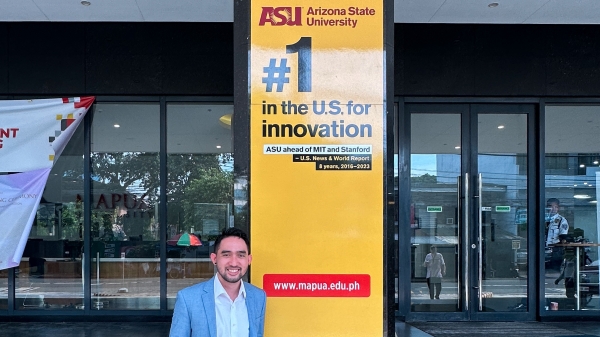
Linguistics work could improve doctor-patient communications in Philippines, beyond
When Peter Torres traveled to Mapúa University in the Philippines over the summer, he was shocked to see a billboard promoting Arizona State University.“It wasn’t even near the university,” said…
